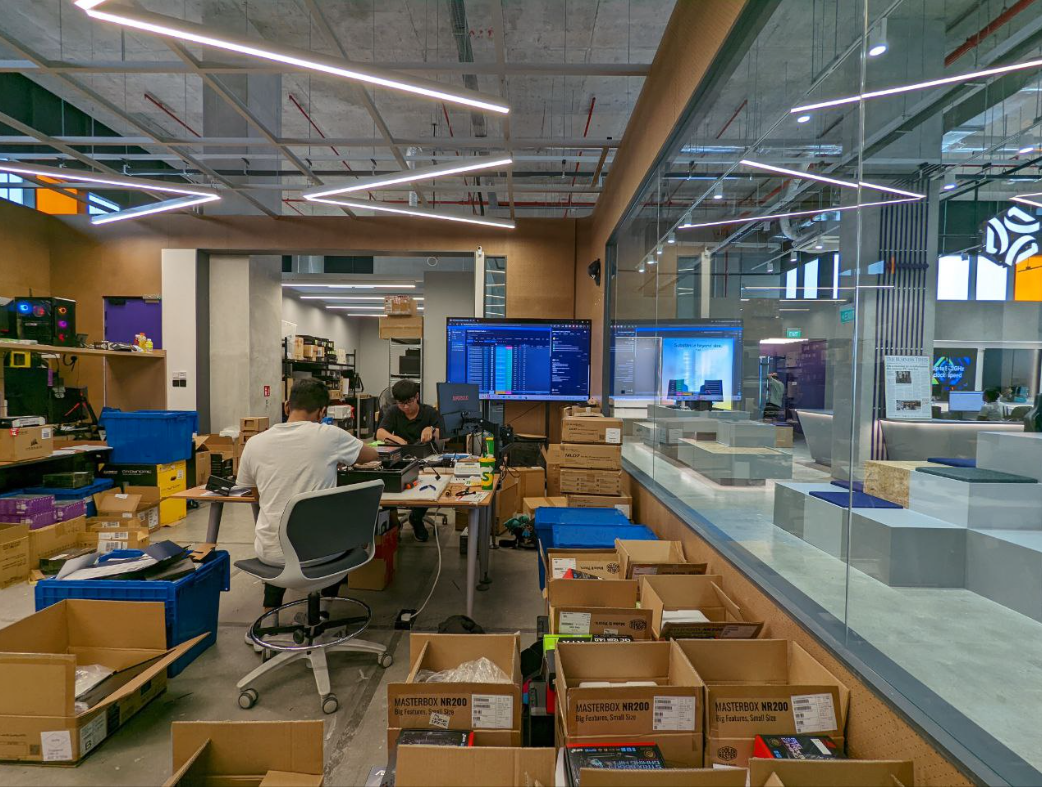It’s very likely that you’ve been to the infamous Sim Lim Square.
Somewhat obscure, uncertain, dubious. Am I going to get ripped off? Who knows. Nobody ever knows.
Its notoriety kind of sums up the experience of what it’s like to get a custom PC, or fix one, in Singapore.
This is the perception of buying and fixing PCs that Singaporean company, Dreamcore, is trying to fix.
Founded by three PC aficionados, their purpose is to help people know how to make an informed decision and to be as transparent with their set-up and repair process as possible.
A personal enthusiasm for PCs
“Are you guys gamers…?” I venture gingerly, aware that it’s a relatively clichéd question for PC lovers.
I’m sitting in front of Dreamcore founders Shaun Tan, Eugene Lim and Kwan Wei Zhong, in the pantry of their 10,000 sqft Dream Centre -- a vast new showroom and office space.
Tan and Kwan cast looks at each other. Nobody says a word.
Lim, the Chief Marketing Officer, is first to break the silence, pulling out a photo of his teenage self seated in front of a bulky computer.
“Yes, I would call myself a gamer. My first game on the computer was Solitaire, my grandpa taught me to play it,” Lim shares.
“I thought I was a gamer,” says Kwan, the Chief Operating Officer.
“But I realised later on that I was just in the game to optimise and find shortcuts to do a lot of things. I’d spend 10 hours reading about the game, and one hour actually playing it.”
Tan, the CEO of Dreamcore, is the last to chime in.
“I wouldn’t call myself a gamer. I play games quite intensively, but not competitively, frequently or consistently.”
Tan also shared how he had an interest in PCs since he was young.
To a layman like me, it seems clear that they all share a personal enthusiasm for computers.
Tan had, at the tenth year mark of a thriving career in Barclays Capital, quit his job to start Dreamcore.
Tired of his corporate job, he saw a business opportunity when he came to know of a US designer who made custom cases for small form factor PCs (basically, smaller PCs).
After reaching out but not receiving a response from another local PC company, Tan decided to bring in these smaller PCs on his own.
The meeting of the three
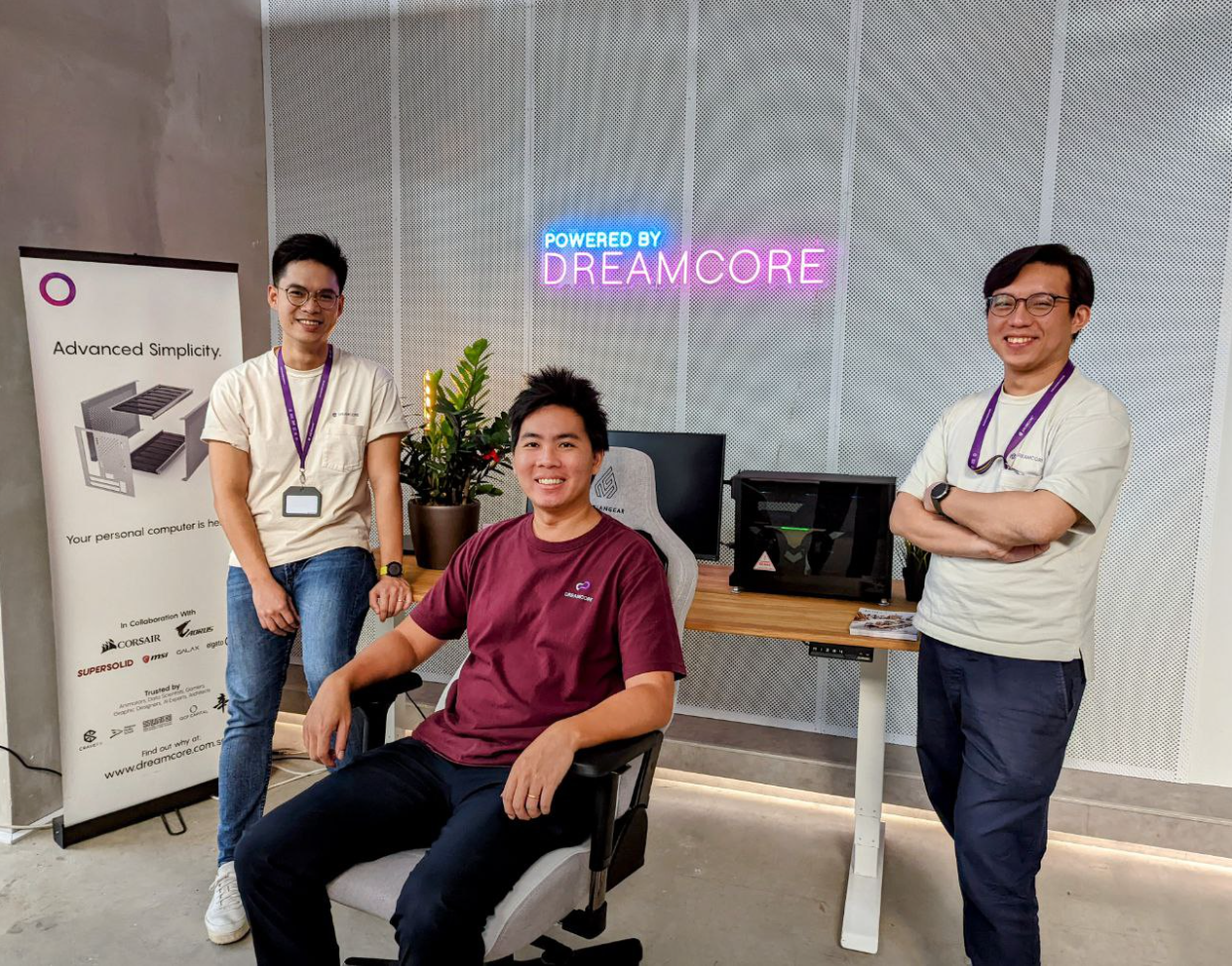 Dreamcore founders Kwan Wei Zhong, Shaun Tan, Eugene Lim
Dreamcore founders Kwan Wei Zhong, Shaun Tan, Eugene Lim
The trio first met at a 2017 IT show.
Kwan, an electrical and electronic engineering graduate, reached out to custom PC players in Singapore. Only Lim responded.
Tan had debuted Dreamcore on his own, announcing the entry of his new brand into the local PC market.
It proved to be a fruitful event, with 17 PCs sold, and two fateful connections made.
The trio worked together on a couple of projects thereafter, with Lim and Kwan bringing their expertise in custom sleeve cables to Tan’s small PCs.
Lim had been the owner of his own PC company then, with Kwan working (for no money!) with him.
“Why would you agree to work when Lim could not pay you?” I ask, appalled.
“After university, I asked myself: ‘If you only get one chance in your youth now, what would you do?’ The answer was PCs. And I knew if I tried to do it on my own, it would be 10 times more difficult.”
“I think we came together with the common goal of just helping more and more people with PCs at the beginning, right? And Lim was really passionate about that,” says Kwan.
Lim had started the practice of on-location servicing for custom PCs, to put at peace consumers’ doubts about what was going into their machines.
This would later come to define Dreamcore’s position on customer service.
Driven by passion to bring good PCs to users
Less than a year after they met at the IT show, Tan successfully persuaded both Lim and Kwan to join Dreamcore full-time as co-founders.
“Why I like these guys is because they’ve always been collaborative. And our visions are aligned -- bringing value to customers, having a good product, that’s super important to us. We were not out for each other’s throats, and if we can make the pie bigger, let’s make it bigger. So that's really why we saw the synergy,” Tan adds.
As we continued speaking, it became obvious to me that the trio complement each other well -- with Tan being the business-minded leader, Kwan with his hands-on expertise, and Lim the voice of the brand to reach out to customers.
They soon realised that their “visions were aligned”, and were adamant to put customers first.
The three of them continued to bring Dreamcore to new heights, driven by their passion to bring good PC products to users.
Transparent, white glove custom PC service
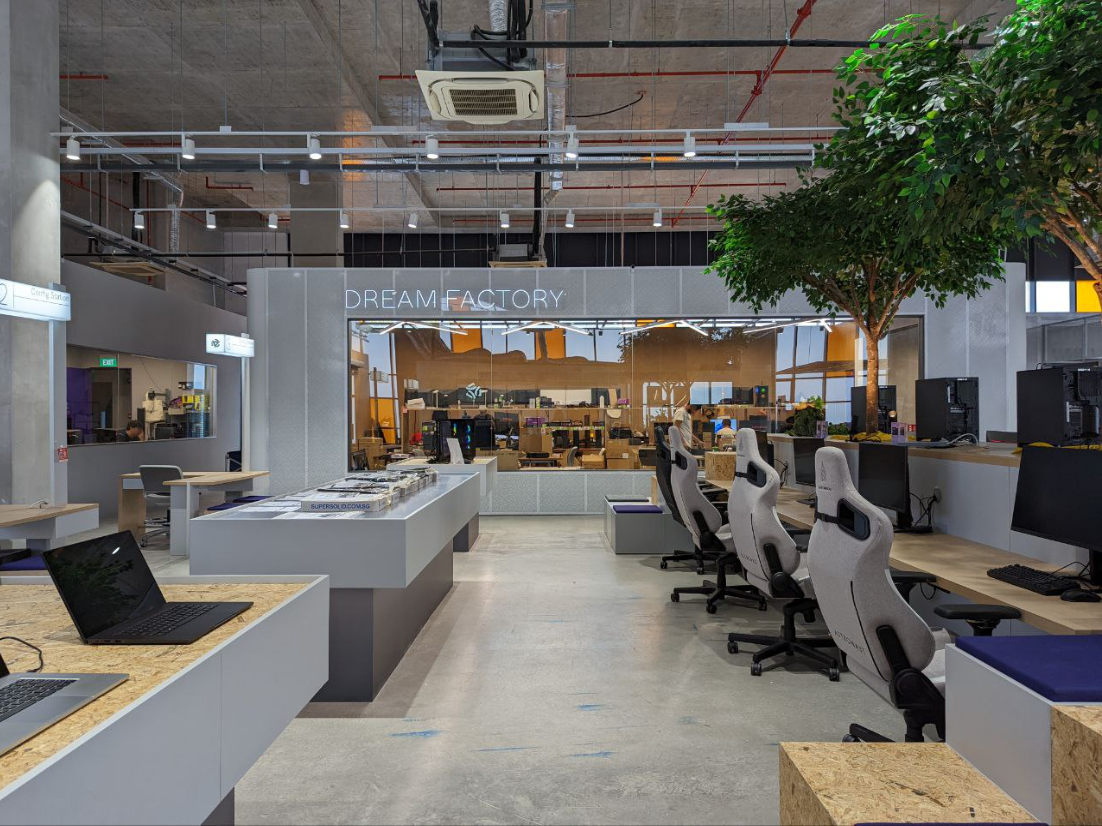 The glass-encased ‘Dream Factory’, where the magic happens.
The glass-encased ‘Dream Factory’, where the magic happens.
One of the more eye-catching features of the office space is their large, glass-encased workroom named ‘Dream Factory’.
“We wanted to be completely transparent with our customers, for them to be able to see the entire process of us putting together their PCs,” says Lim, as he brings us on a tour of the space.
Those not familiar with how customisation works might have their worries eased if they can see just what is going into the customisation.
“We still have people asking if their parts are new, requesting to see the computer parts in its original packaging,” Lim adds.
Of course, Lim is making a reference to the scepticism many Singaporeans have about PC build and repair companies -- no thanks to shops in Sim Lim Square.
“Since it’s glass, everyone can see clearly what’s happening. There are even seats for our customers,” Lim says, laughing.
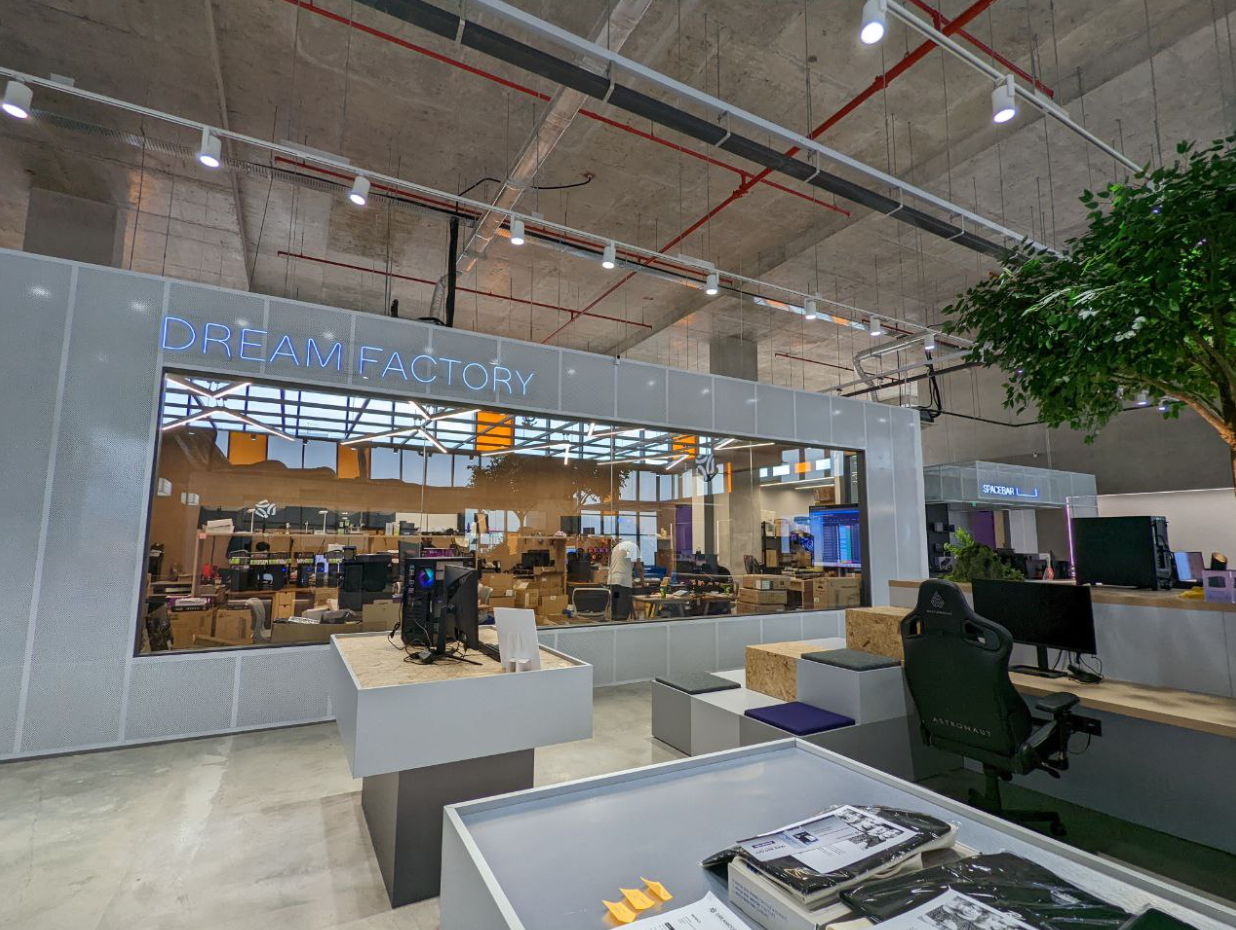 Customers are welcome to sit on the wooden steps facing the workroom.
Customers are welcome to sit on the wooden steps facing the workroom.
At the heart of Dreamcore’s customer-centric approach is the desire to provide know-how and dispel obscurity and lack of understanding about PCs.
For every customer inquiry, Kwan and his team would send a ‘requirement finding’ message to find out the top five applications the customer is intending to use with the PC.
Thereafter, they would recommend products based on the customer’s intended usage and budget.
“We believe in a solution-first approach in which we identify the needs and usage of our customers and base our recommendation from there,” shares Kwan.
“What if you don’t have an answer to an inquiry from a customer?” I ask.
To do that, they collaborate with brands like Asus and Blackmagic Design to find the perfect solution.
Of course, there are ways for them to understand the customer’s PC usage, and be able to find a way forward from there.
“A lot of times it’s this learning journey with our customers that makes us better, and we learn and can translate this information to new customers.”
Cost efficiency for every need
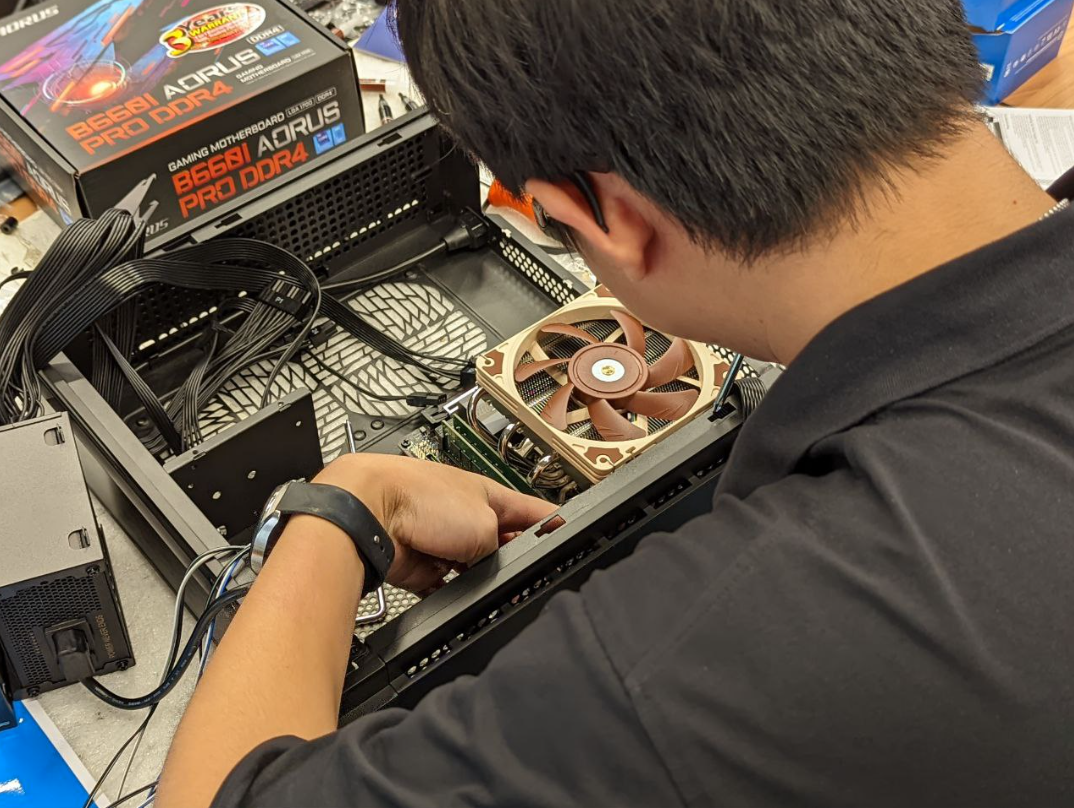 A Dreamcore staff putting together a custom PC.
A Dreamcore staff putting together a custom PC.
Here’s the thing about custom PCs: you basically can scale up or scale down, with its functionality directed to your needs.
Need a PC optimised just for one specific software application? You can pay less than a readily available PC with frills you don’t need.
This focus on optimisation is what’s drawing consumers to Dreamcore -- from gamers, home-based workers, content creators, to production studios, animation houses and universities.
It’s not just gamers who need to zhng their computers, and Dreamcore strives to be all-rounded to serve multiple markets.
“It’s not a gaming company,” Tan says.
They are more than ready to compete with international tech giants like Dell, Lenovo and HP, and hope to draw consumers and businesses who can’t get custom, optimised solutions from these giants to Dreamcore.
At the end of the day, the trio admit that it's the interactions with customers and partners that keep them going.
A major moment of validation for Tan is Dreamcore being selected as the National Day Parade Media Technology Consultant, with animation and media for the show being done on Dreamcore machines.
“When I see Google reviews praising our service and customised approach, I know our PCs are being put to good use,” adds Kwan.
"It motivates me to push harder."
“The more people you talk to, the more you realise there is actually room for players like us to come in and change things,” Lim adds.
“Very often, people come to us with computers from other places, asking us to fix it because someone else can’t. Corporate customers come to us and find out they’ve been paying double the price for a computer when they could have gotten it half the price with Dreamcore for the same, or better specs. It’s these instances when I realise there’s still so much more we can do.”
The company’s gotten much bigger in a mere five years, and they are selling quite a bit more than the 17 custom PCs back then.
But as they talk about spec issues and affordable prices, their goal seems to have stayed rather similar:
“I think we came together with the common goal of just helping more and more people with PCs.”
All photos by Yeo Tsiu Wen.
This sponsored article by Dreamcore made the writer wish she had space for a PC in her home.
If you like what you read, follow us on Facebook, Instagram, Twitter and Telegram to get the latest updates.

